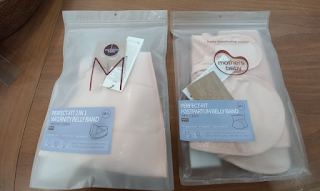Unmasking Gaslighting Understanding, Recognizing, and Addressing Manipulative Behavior
We often encounter gaslighting situations, yet we may not realize when we are being gaslighted or engaging in gaslighting ourselves. When hurt by the words of others, it's important to think rationally to avoid being unduly influenced, which can lead to destructive self-doubt otherwise.
A few years ago, the media began highlighting the subject of gaslighting, reminding viewers of its existence. Drawing attention and preventing unconscious participation in gaslighting is crucial in relationships between couples, friends, and colleagues. Unfortunately, gaslighting behaviour can be practised unnoticed and breeds within families. Despite initially good intentions, it can turn family members into bitter enemies when it occurs over time.
So, what exactly is gaslighting?
It refers to a psychological behaviour where one person manipulates another, causing them to question their sanity or perception of reality.
Example I in couples
Let's say you're in a romantic relationship with someone who is frequently ignorant or dismisses your feelings and experiences. Whenever you express your emotions or raise concerns about something, they respond by saying things like, "You're overreacting" or "You're just being too sensitive." "Stop assuming things" They may even deny that certain events or conversations took place, making you doubt your memory.
Example II in a family,
Imagine you have parents who constantly belittle your achievements and undermine your abilities, wishing you to meet their expectations. Whenever you achieve something significant or express your aspirations, they comment, like " This is something that anybody can do" or like "You can do better than this", or "Do you know how hard I work for your future, but this is only you can do?!", They consistently downplay your successes and make you doubt your own skills and worth.
What can we do to take the initiative when we face this situation?
We can enhance our awareness by exploring recognizable examples of gaslighting like this in our surroundings,
Taking steps to avoid becoming active gaslighters ourselves is crucial.
Lastly, identifying gaslighting words or conversation.
The seemingly harmless remarks made by others can also inflict deep wounds, undermining our sense of self-worth.
Seemingly harmless example :
A talented artist, Anna eagerly shares her latest painting with her friends during an art gathering. Expecting words of encouragement and support, she is met with a dismissive comment from one of her friends: "It's nice, but I've seen better."
It's crucial to tell the difference between genuine compliments and gaslighting. A genuine compliment, like "you are sitting elegantly," is positive and not gaslighting. Gaslighting involves intentionally manipulating someone to make them doubt themselves and their perception of reality.
💨💨💨
If you often misunderstand or are unsure and act differently from what was intended, it's helpful to constantly reflect on your reactions and others' reactions or seek support if necessary. Recognizing these patterns can lead to better communication and emotional well-being.





Comments
Post a Comment